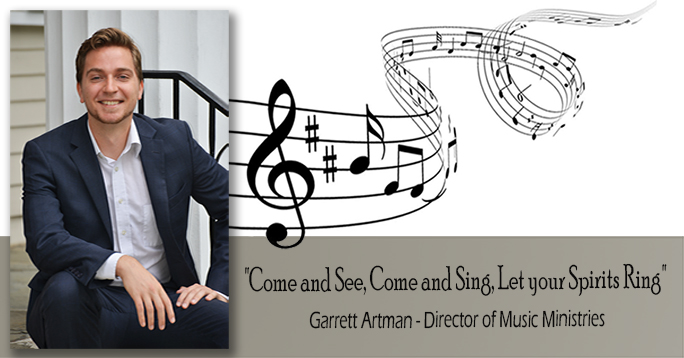
It’s been just over a year since I have been welcomed to FPCY as the director of music ministry. After reflecting on our worship themes over the past months, re-watching the sermons, listening to the weaving and nuances of how to practice being a neighbor, I have truly wondered what it means to be a part of this church.
Every day I see and hear people practicing exactly what it means to them and sharing their own perspective and experiences to build a stronger faith community.
While I am no preacher and often have difficulty expressing my thoughts in the moment, I am thankful for this opportunity to write down and visualize my faith. Having no idea what “The Disciple” was, I seized an opportunity to speak on behalf of our music program and to share the love I have for this terrifying art we all consume and indulge (much like a thanksgiving meal).
Recently, we as a congregation have participated in a wonderful tool called the “CAT” (congregational assessment tool), allowing us to observe our starting points, strengths, and growth areas as a church. Naturally, I was interested in the worship and music questions and was shocked to see a lack of questions regarding it.
There’s the old trope that church musicians are typically regarded as those who sustain the church by providing musical services. This view has them responsible for creating fellowship and good feeling in the congregation – dispensing services that keep everybody happy, entertained, and wearing a shiny badge of honor that our music is “good.” First, let me say, no, I don’t think we perpetuate this idea, but the implication of musical consumerism is one we should openly discuss.
It can be difficult to try to meet what are often competing demands: some people want gospel piano hymns, some want organ symphonies, some want chorales, still others don’t want to sing at all and expect the choir to do it. There are those who want the choir to sing 16th-century motets and others want it to sing contemporary tunes. The musician is supposed to meet all those requests. The musician is usually not expected, however, to think, make judgments, ask questions or have a dialogue with anybody. The congregation wants the musician simply to satisfy its wants, no matter how contradictory and confusing those may be. Defined this way, the life of a church musician can be interesting. Musicians in this situation not only sense that something is wrong at the heart of things, but that they can never do anything right. They do not know what to plan and practice, or what demands to heed. They receive no direction except for the worst sort of consumerism.
Underneath all this is the church musicians’ relationship with parishioners and with God. Here is where I can practice my gratitude and have a conversation with all of you about the function of music beyond performance, concerts, uplifting hymns, and dedicate my life to the art of being human.
While I long for the day we can be together, I give thanks that we can still provide live music with real people singing the word of God.
As the gift of Christ was given to us, we can give the gift of music, because we operate within a community of grace that is sustained by God. I am free to take risks, to “fail” and “succeed,” because sustenance is not our concern; faith is. That means knowing the big story, knowing the people’s stories and their capacities, and then serving them with care. The practical life of the church musician is the outcome of a vocation — a calling — that serves God and the people of God with God’s unique gift of music.
~Garrett Altman, Director of Music Ministry
